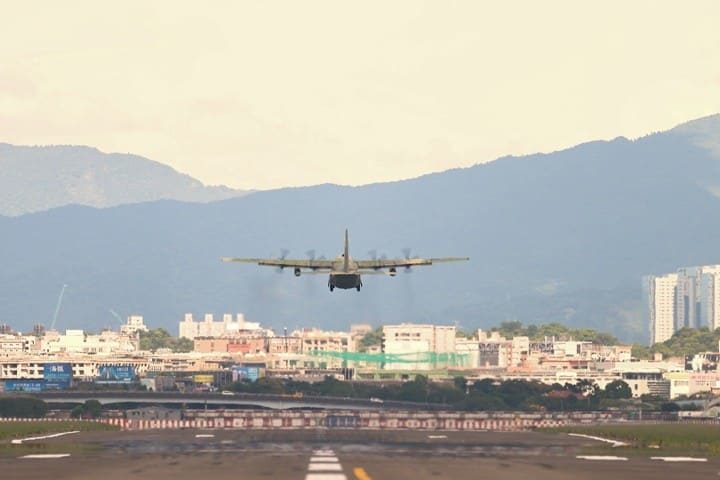
SINGAPORE — As Taiwan attempts to enhance its forces against threats from China, the island nation’s military declared plans on Tuesday to include women in its reservist training for the first time.
The self-governed democracy is under constant threat of a Chinese invasion, as Beijing states repeatedly that the island is part of its territory to be reunited with the mainland one day, by force if necessary.
Taiwan and China separated when the Chinese Civil War ended in 1949, and President Tsai Ing-wen has asserted time and again that becoming a part of China is not acceptable to the people of the island. In contrast, Xi Jinping, China’s most ambitious and strict leader in decades, has indicated that the task of what he terms as the “reunification” of Taiwan must not be passed on to future generations.
Although Taiwan is a mountainous island and would present a considerable challenge to an invading force, it is greatly outgunned, with 89,000 ground forces juxtaposed with China’s one million, based on U.S. Pentagon estimates.
China’s pugilism has escalated in recent years under authoritarian Xi, and Russia’s actions in Ukraine have added to concerns in Taiwan that Beijing might do the same.
In light of all this, Taipei’s Defense Ministry announced it would permit about 200 discharged female soldiers to enroll in voluntary reservist training beginning in the second quarter of this year to bolster the overall backup force.
“This is the first year to include women in the reservists training, so this year will be a trial programme,” said Major-General Yu Wen-cheng from the ministry’s All-Out Defense Mobilization Agency. “We will plan the training capacities according to the number of applicants.”
At the moment, only Taiwanese men are included in mandatory military service and reservist training, although women can volunteer to serve in the armed forces.
Last month, Taiwan declared that it was extending the duration of compulsory military service for men from four months to a year amid China’s rising saber-rattling, and many military analysts have called for Taiwan to ramp up efforts to fortify its reserves and prepare its civilian population for defense, such as permitting more women to train.
Some lawmakers have also suggested including women in some type of mandatory service. Tsai, Taiwan’s first female president, remarked that the extension of military service was important to “ensure the democratic way of life for our future generations. No one wants war … but my fellow countrymen, peace will not fall from the sky.”
Conscripts in Taiwan are poised to undergo more intense training and operate more powerful weapons when the island’s enhanced military service program starts in 2024, Tsai added. For instance, privates will have to operate Stinger anti-aircraft missiles, anti-tank missiles, and drones to better adapt to modern warfare.
They will also participate in shooting exercises and be involved in close-combat training inspired by military programs in other countries such as the United States. More time will be allocated to boosting marksmanship, too, as conscripts will be expected to fire at least 800 rounds of ammunition during their service duration. “From the training grounds to training methods, instructors, teaching materials, training equipment, or weapons and equipment, everything will be strengthened and improved in both quality and quantity,” said Tsai.
For years, critics have pointed out that Taiwan’s military service program, which presently incorporates bayonet drills, is obsolete, and it has been common to hear recruits complain about having spent the bulk of their training period doing menial tasks such as sweeping the floor or delivering mail.
“I know that a lot of Taiwanese say that being a soldier here is a waste of time,” Tsai said. “We hope that under the new system, the year of serving as a soldier will not be a wasted year, but becomes a year for them to transform into more mature people who learn how to survive, to fight better and to be able to save others.”
At present, all males over the age of 18 must go through four months of compulsory military training. The new conscription program will see the initial boot camp prolonged from five weeks to eight weeks.
A spokesman for the Defense Ministry said that conscripts will be part of Taiwan’s defense troops, whose role is to back the island’s professional force of volunteer soldiers defending the island’s waters, territory, and airspace. Thus they will be entrusted with protecting military posts and major infrastructure, which would better enable the voluntary force to react more quickly to a Chinese invasion.
In the competition for diplomatic space, Taiwan is outflanked by China, which has far more superior resources. Taiwan is acknowledged by just 14 states in the world, and that number could fall in 2023. Paraguay’s opposition politician Efrain Alegre, eyeing increased soy and beef exports to China, has indicated he would switch diplomatic recognition to Beijing should he emerge victorious in the presidential election in April.
Judging by Taiwan’s actions in the past year, one could reasonably surmise that the island would capitalize on its strengths while tapping in on changing global sentiment towards China. As Dr. Simona Grano, director of the Taiwan Studies Project at the University of Zurich, said: “Taiwan lacks formal diplomatic recognition from many countries, but it entertains various forms of social, economic and cultural interactions with them.”
Arguably, Taiwan in recent years has seemed to shift the focus from statistics in diplomatic recognition to more informal ways of elevating its profile.
For example, the island was under the spotlight when it purchased rum from Lithuania when the European state riled China by seeking closer relations with Taiwan. The government-owned Taiwan Tobacco and Liquor bought up over 20,000 bottles of rum that it said were “drifting at sea” after China denied ustoms clearance for them. Some of the bottles were then put on sale online and in brick-and-mortar stores — and were rapidly sold out.
Legislators from Europe, Australia, Canada, and the U.S. have lobbied hard for the self-ruled island to be permitted as an observer at the World Health Assembly (WHA), the governing body of the World Health Organization (WHO).
Taiwan has been barred from participating in the assembly since 2017 due to protests from China. Although the island has yet to be successful in its attempt to return, it has gained diplomatic space in other ways, political scientist Sung Wen-ti at the Australian National University said. “Even though Taiwan lost the WHA battle, it may still be winning the war of greater international space.”
In upcoming months, Taipei is anticipated to leverage on its image as an underdog advocate for democracy, one in risk of being overcome by communist China. The island has constantly singled out its status as a free and vibrant democracy, particularly following the Russia-Ukraine crisis, and this type of messaging is “acutely important,” said Dr Grano. “It’s ideological — presenting democracies versus autocracies.”
In her national address in October, Tsai declared that “the destruction of Taiwan’s democracy and freedom would be a grave defeat for the world’s democracies.” Evidently, that message resonates with the United States and its allies in Asia and Europe. As Dr. Gerrit van der Wees, a former Dutch diplomat who teaches East Asian affairs at George Washington University, opined: “An increasing number of countries are turning away from China because of its aggressive behavior, and turning to Taiwan … for reasons that are important for sustaining democracy in the world.”
However, Taiwan is not depending on ideological rhetoric alone. It has also gradually positioned itself as an essential player in the global supply chain, which would also make the island a key partner to have.
This is because Taiwan produces 65 percent of the world’s semiconductors — the vital components found in cars and smartphones as well as fighter jets and satellites — and almost 90 percent of the most advanced chips.
“Taiwan leverages its expertise in semiconductor manufacturing as a way of showing what it can bring to the table in its diplomatic partnerships, so that it’s not just about Taiwan needing help from the international community,” said Assistant Professor James Lee from Academia Sinica in Taipei. “More and more countries are starting to realize that Taiwan has a vital role in the global economy — highlighted during the chip shortage — and that a conflict in the Taiwan Strait would be devastating.”



